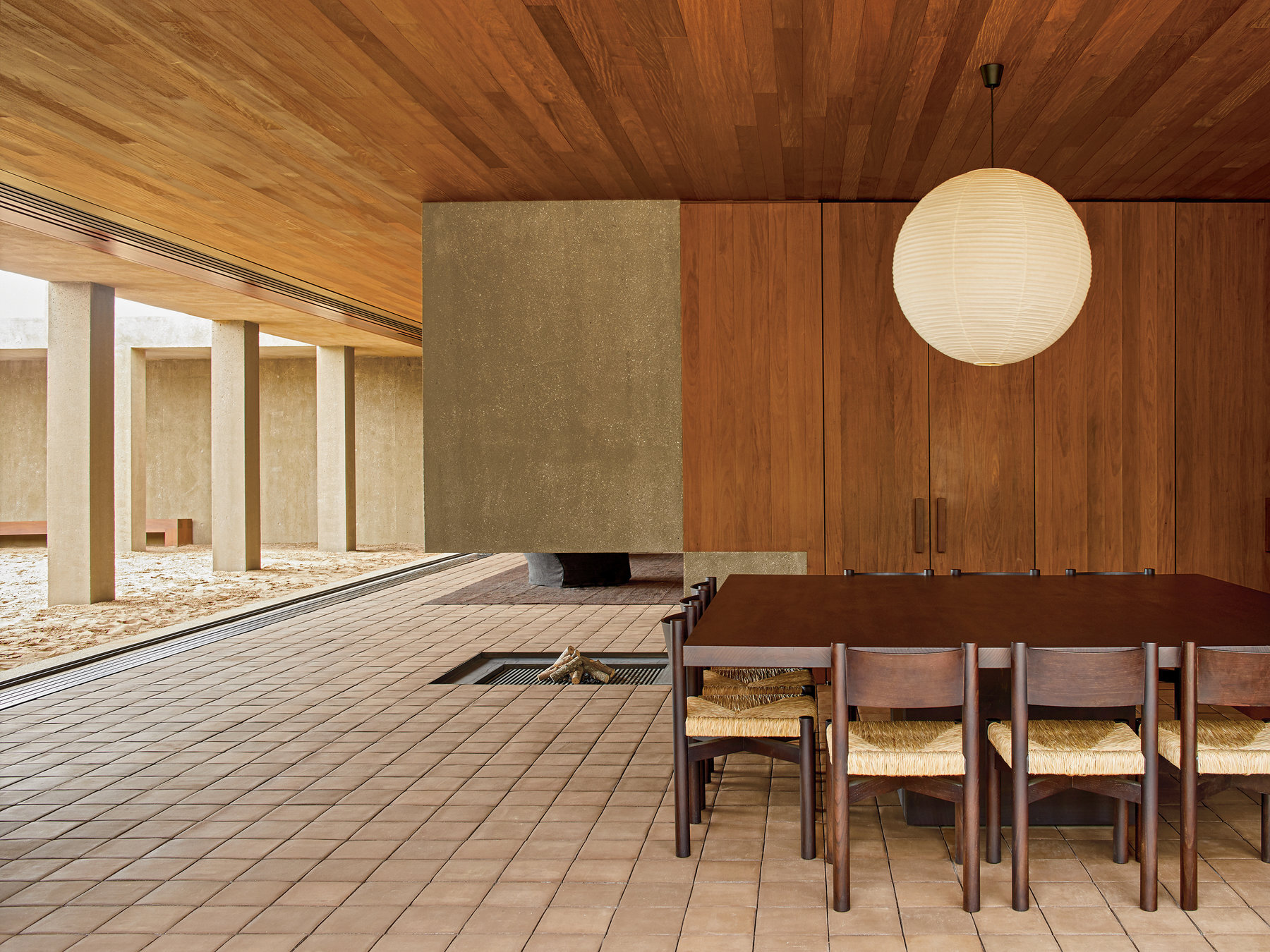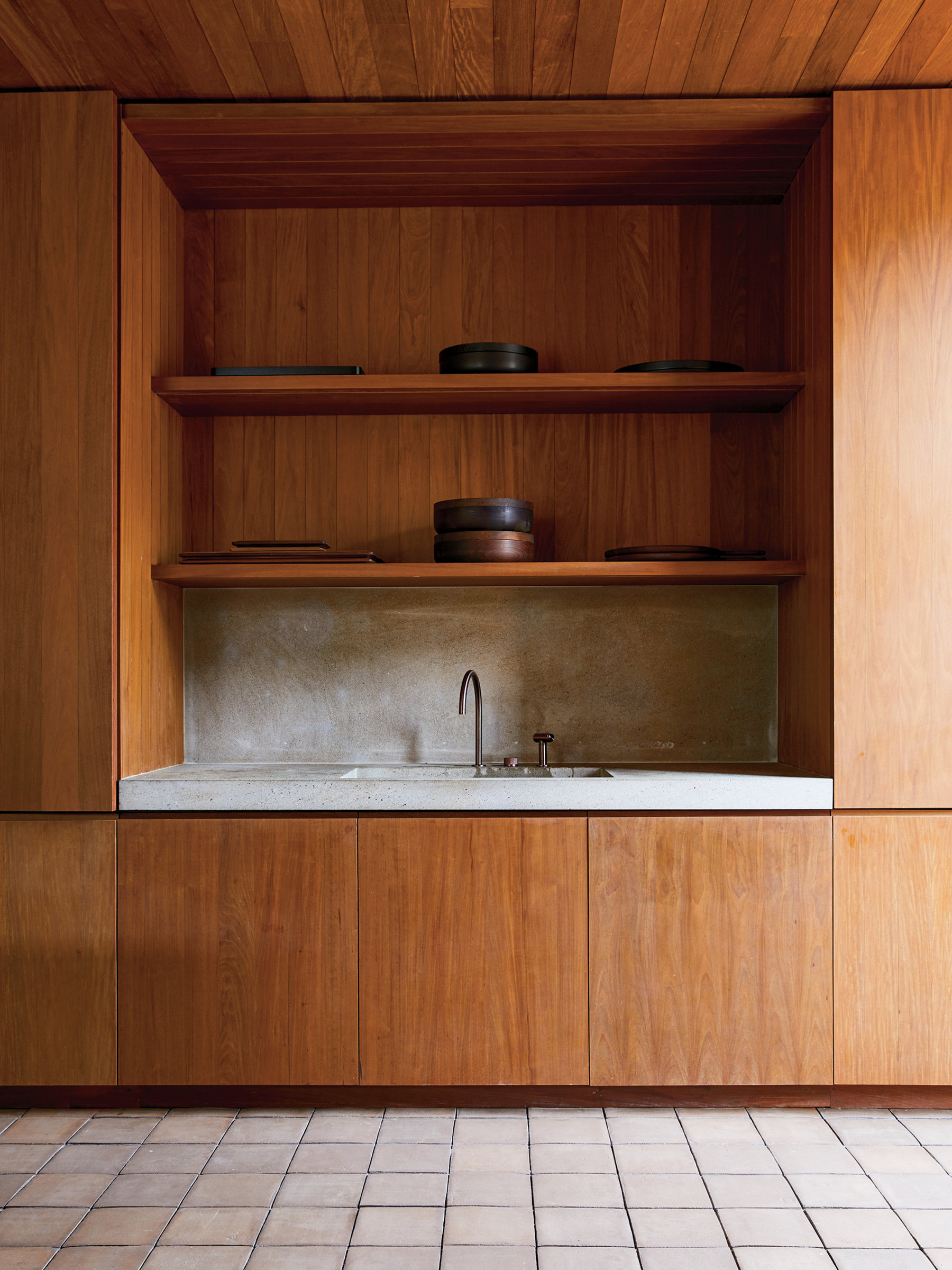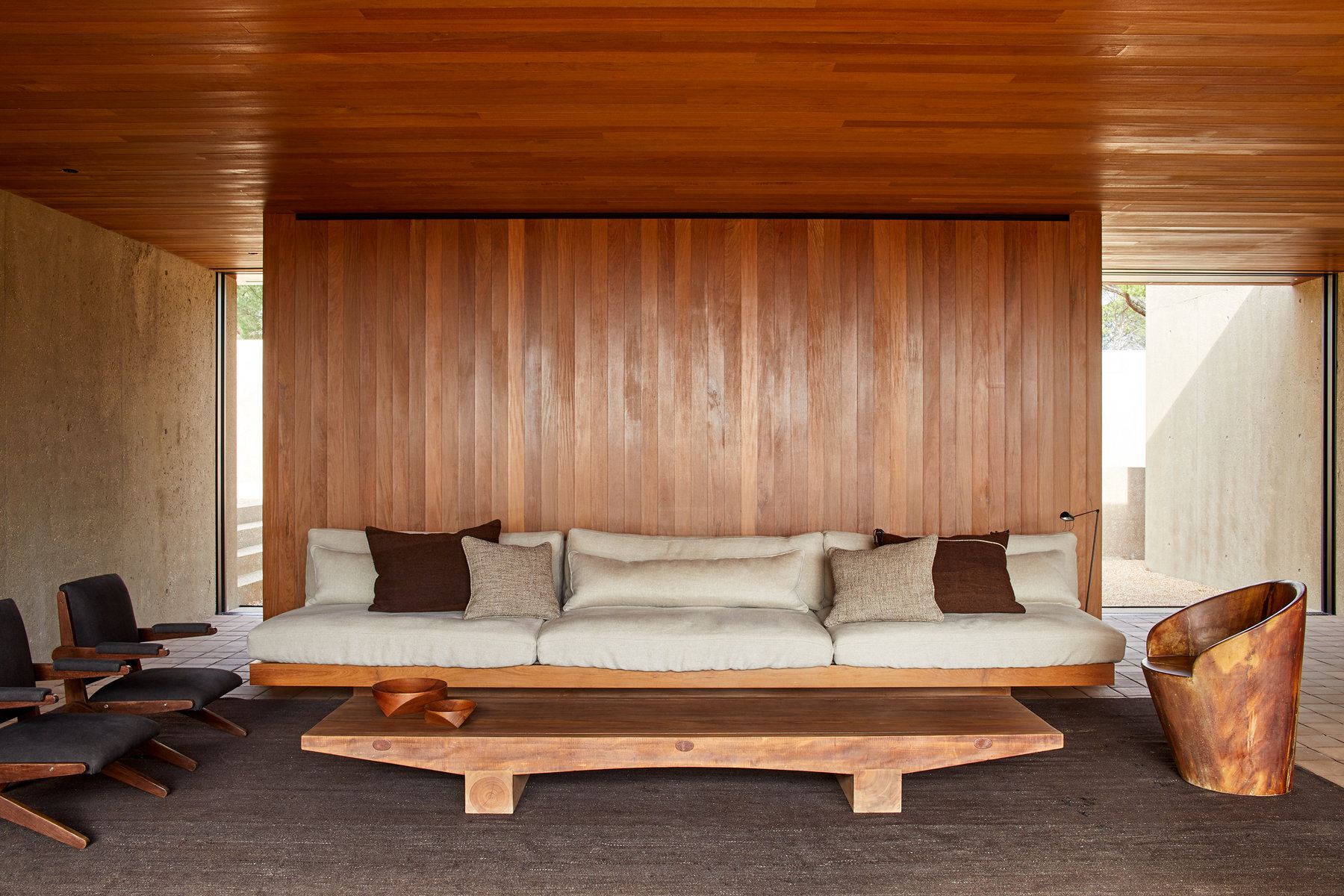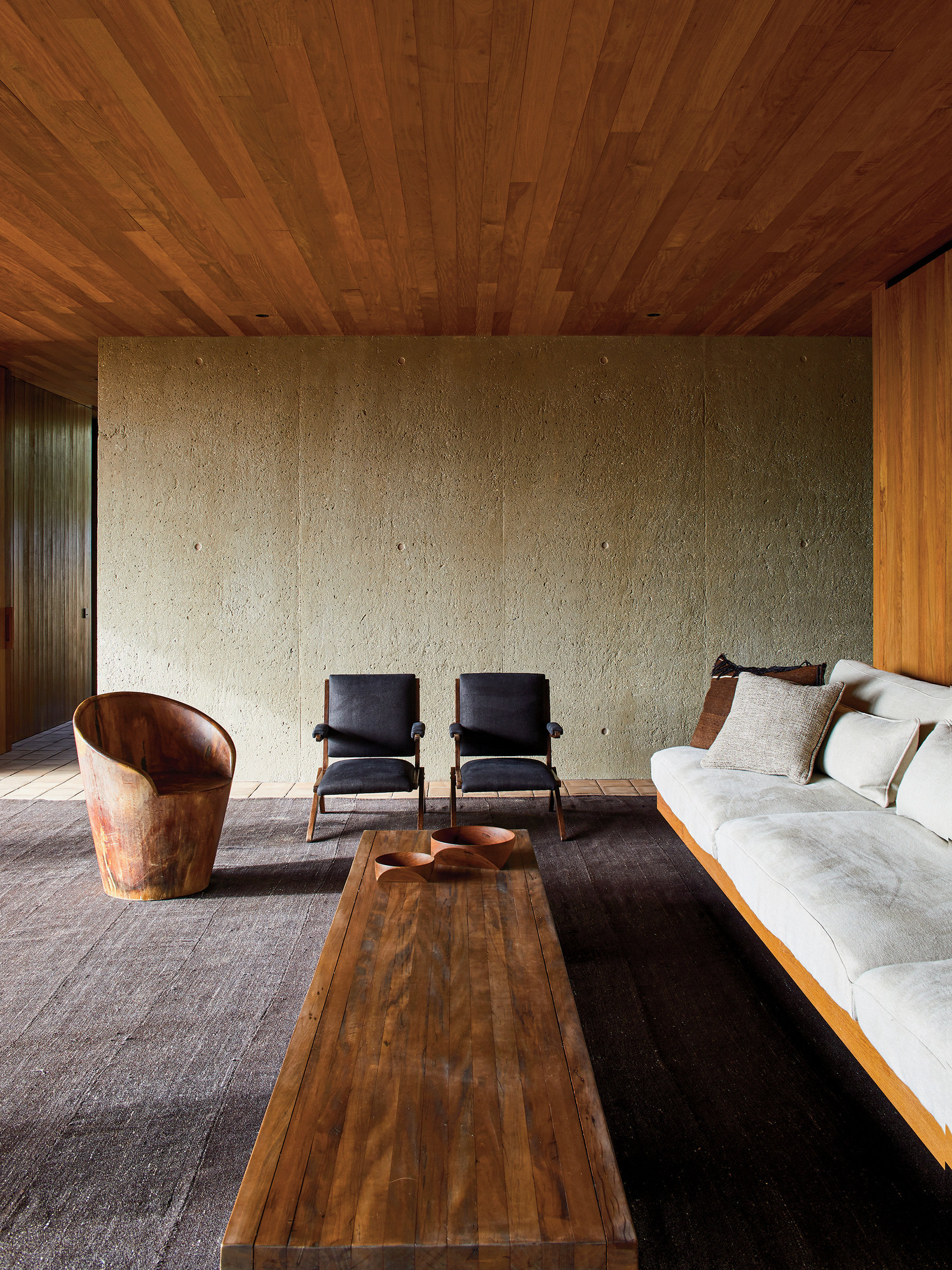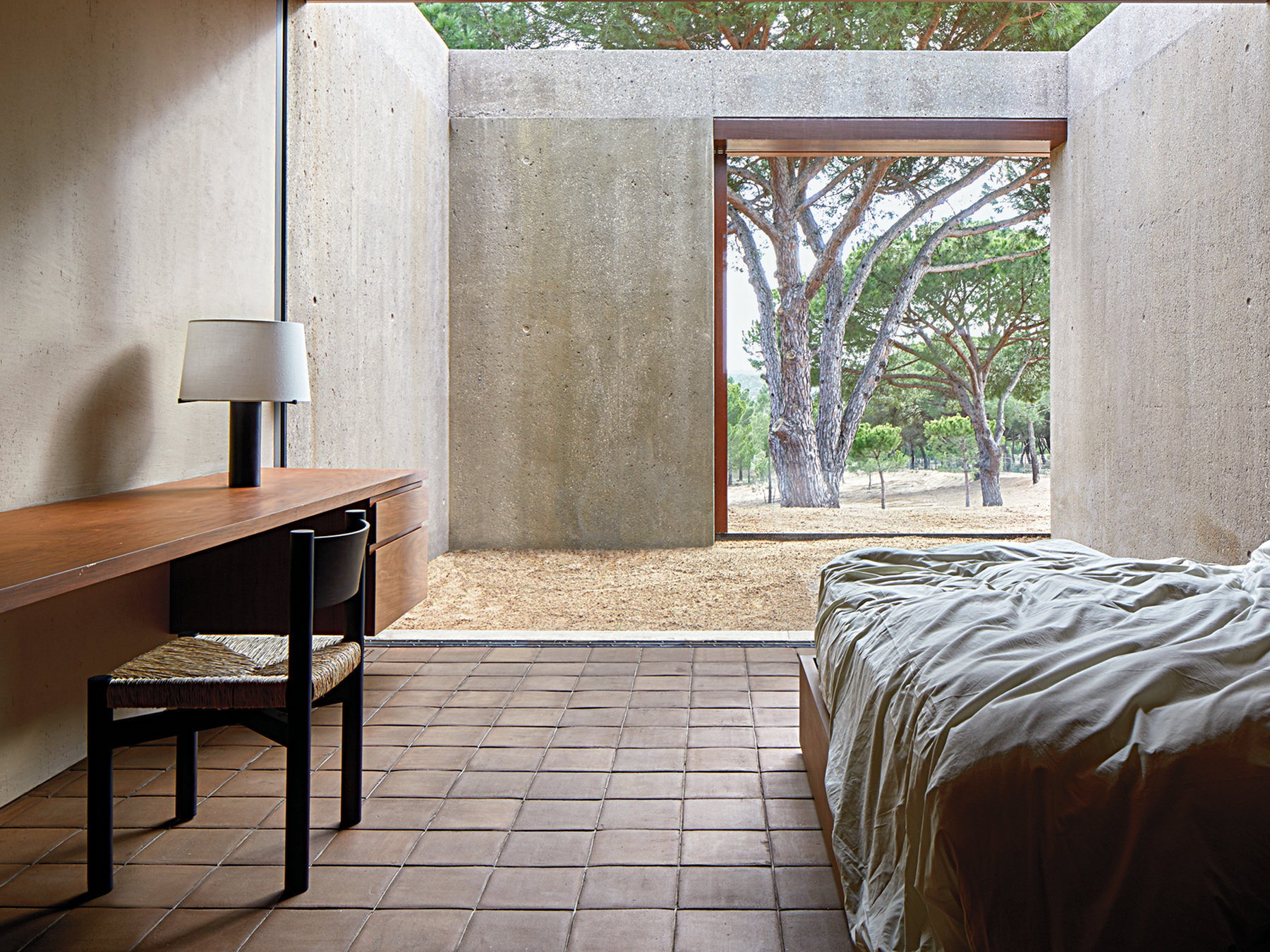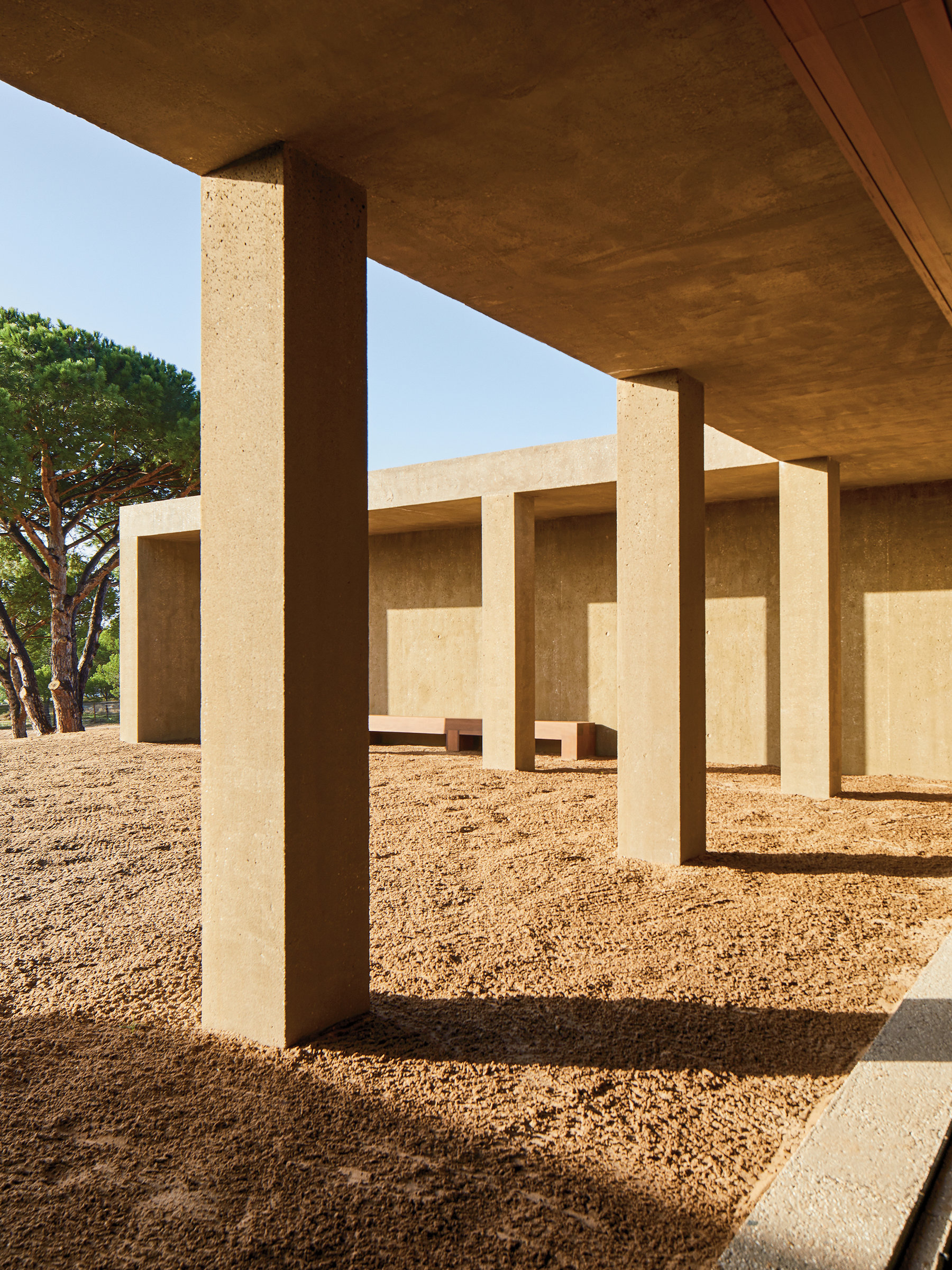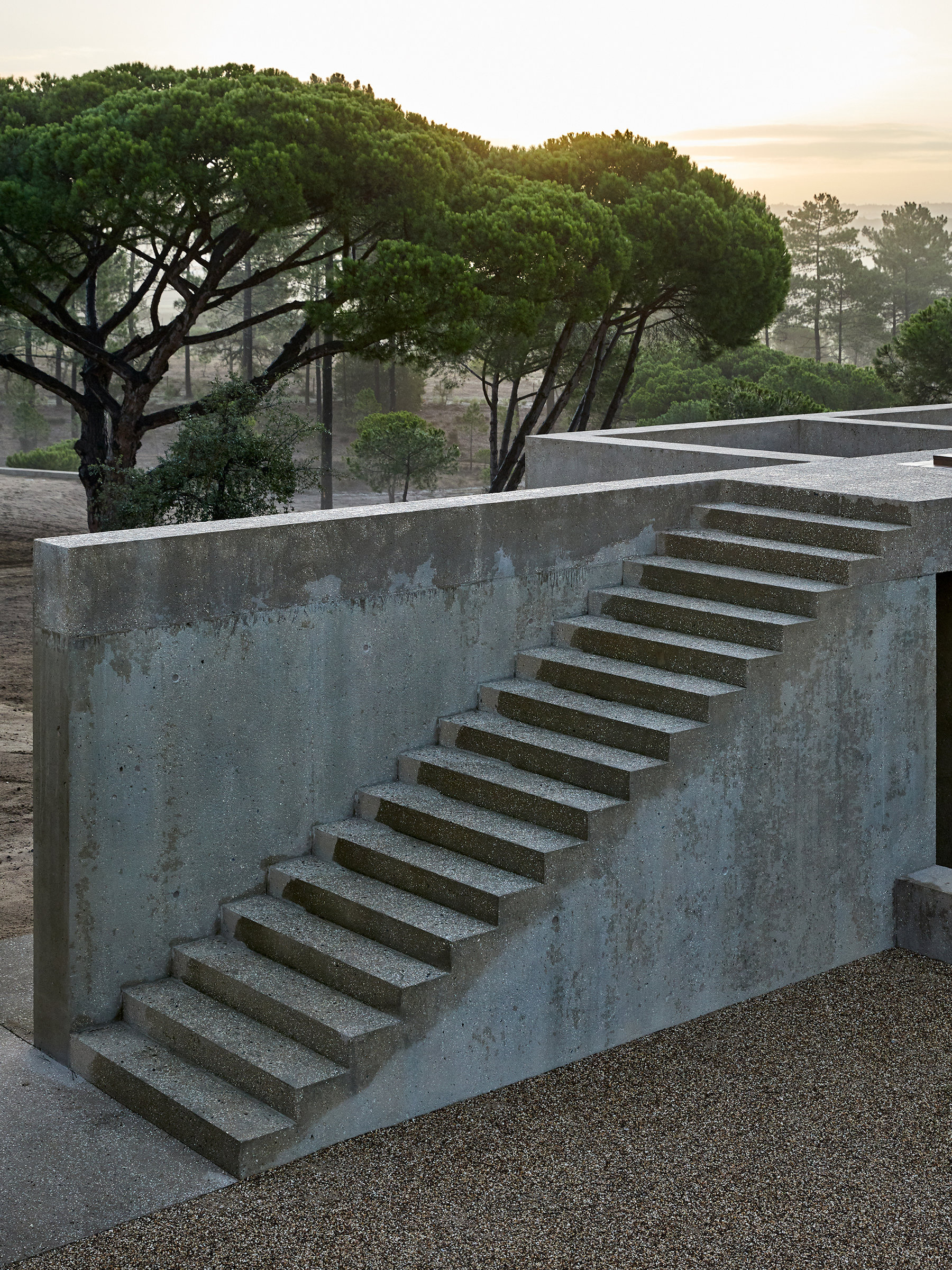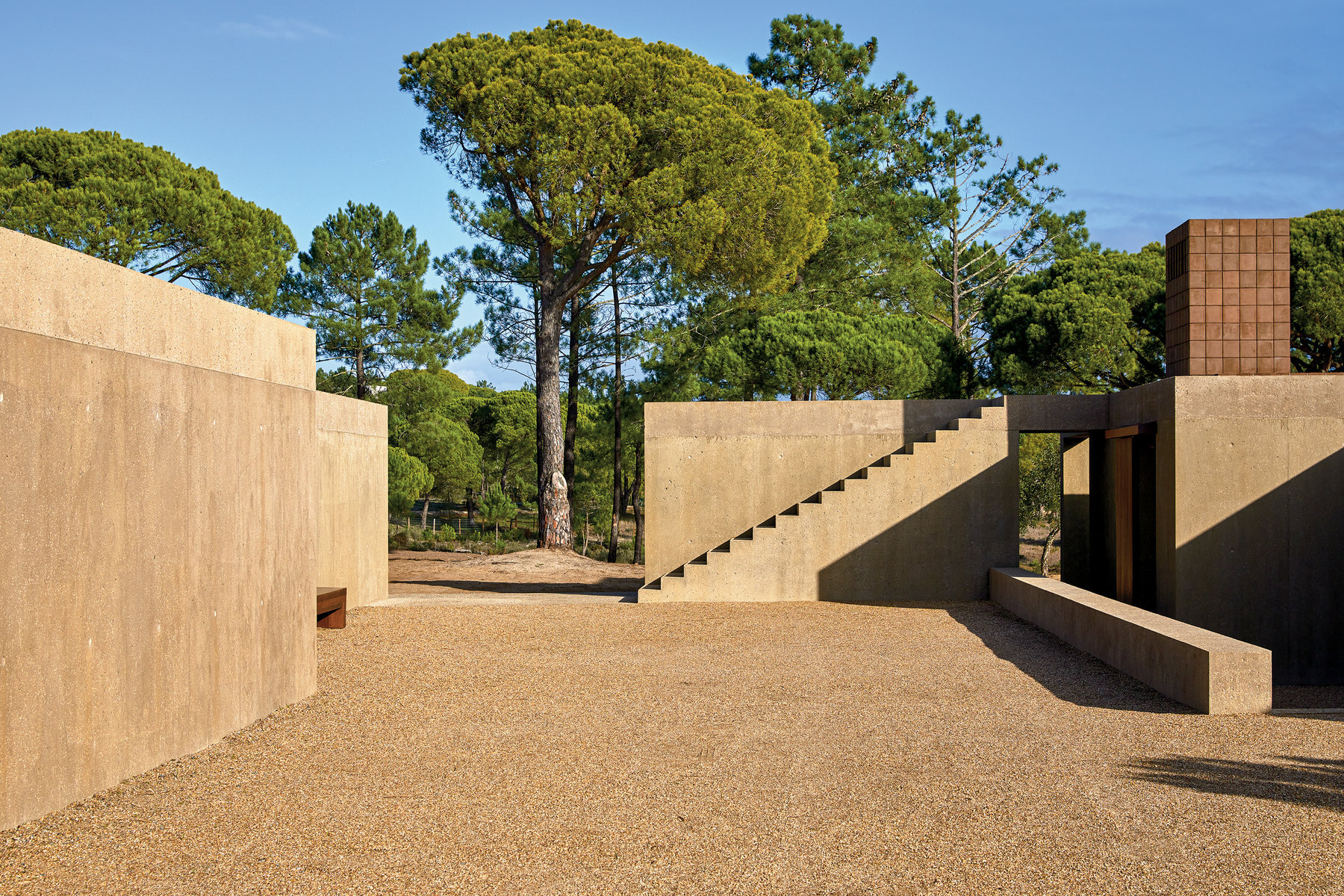TEXT VIA THE NEW YORK TIMES “Viewed from the end of a long, dry dirt driveway on an October morning, the house looks like nothing special: a decommissioned military bunker, maybe, though barely recognizable as that, a pair of one-story, sand-colored rectangle structures nestled against a 45-degree dune like a set of dresser drawers. But once you get closer, you see that their ordinariness is an illusion. Here, in Melides, Portugal, a half-hour drive down the coast from the stylish resort town of Comporta, the 57-year-old Belgian architect Vincent Van Duysen and Mateo Bou Bahler, his 30-year-old boyfriend, a model, sit in the shade of the umbrella-shaped Mediterranean pines on the grounds of Casa M, a deceptively high-concept vacation compound built over three years by Van Duysen’s 30-person Antwerp studio.
The 14-acre, 7,104-square-foot complex — which includes the main U-shaped house, a detached garage with a rooftop pool and a guest cabana — is, for the man who conceived it, both a disappearing act and the purest expression of the texture-obsessed, materials-driven strain of modernism that has defined his work for more than three decades. Though Van Duysen’s sparsely furnished, whitewashed, raw-wood-hewn residences and commercial projects throughout Europe, including the August hotel in Antwerp and the Aesop store in Hamburg, have established him as one of design’s leading minimalists, he detests the label; he’s always felt his work is softer, richer and more livable than the movement with which he’s often associated. “You could call this minimal, but it’s not minimalist,” he says of Casa M. He prefers the term “warm Brutalist” instead, suggesting an approachable, even sumptuous take on the concrete-driven construction that in the mid-20th century challenged the steel-and-glass orthodoxy of the International Style. With an exterior of exposed aggregate (a type of concrete left unsealed to reveal its craggy components) tinted a bone hue that Van Duysen tested a dozen times to ensure it would vanish, mirage-like, into its sandy surroundings, the compound achieves the opposite effect of its Brutalist forebears, which overpowered cityscapes.”
Photography by Ricardo Labougle
